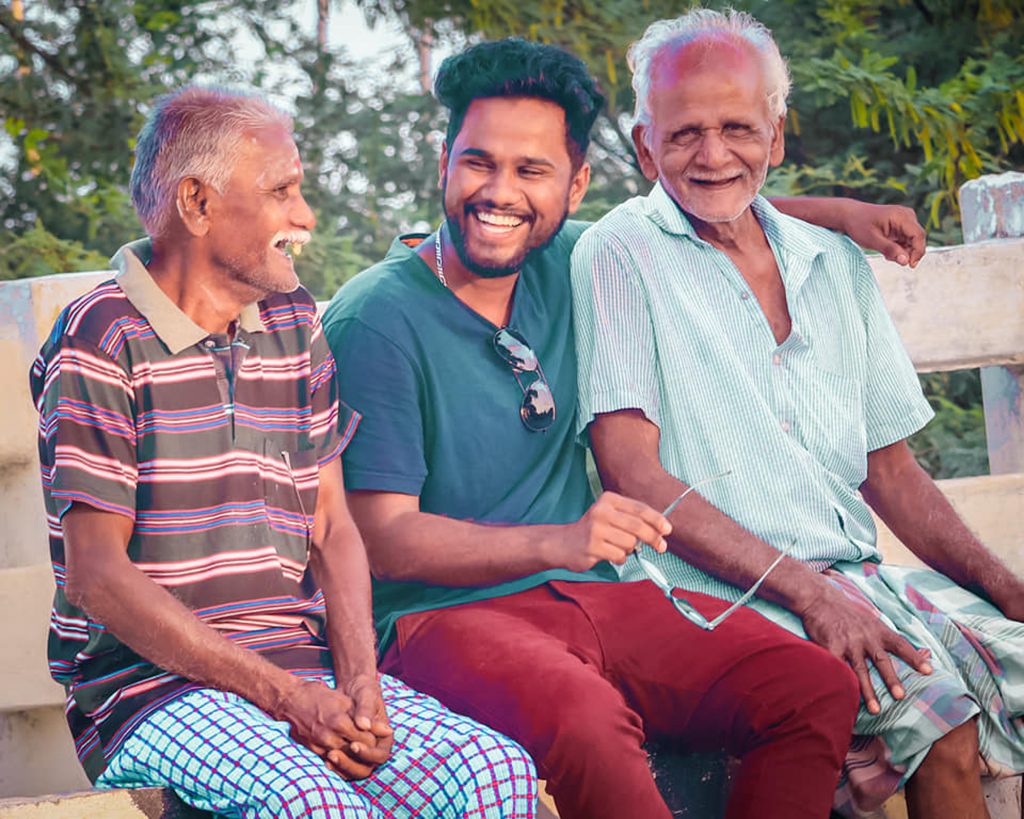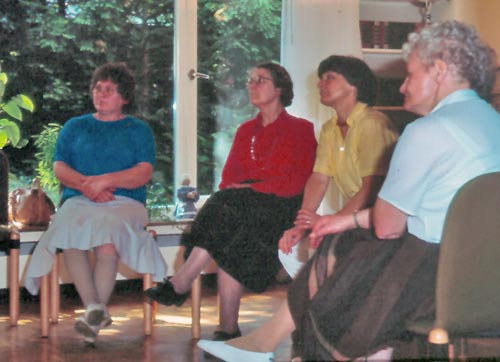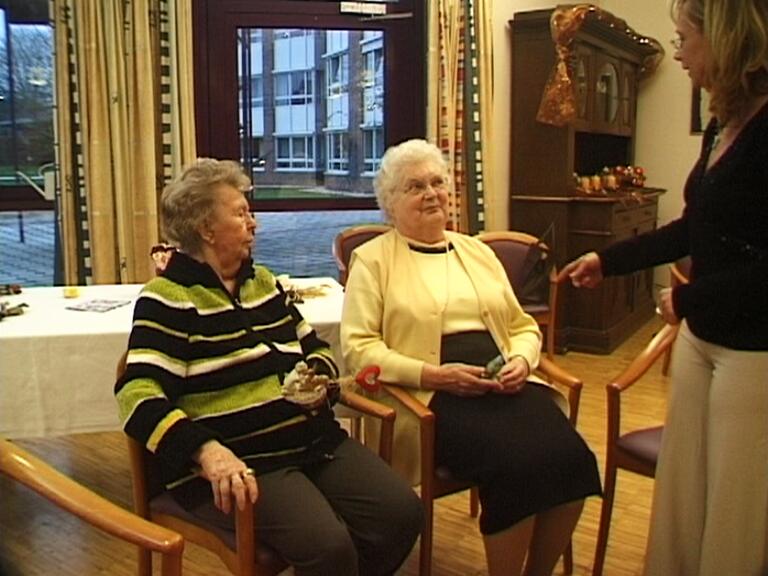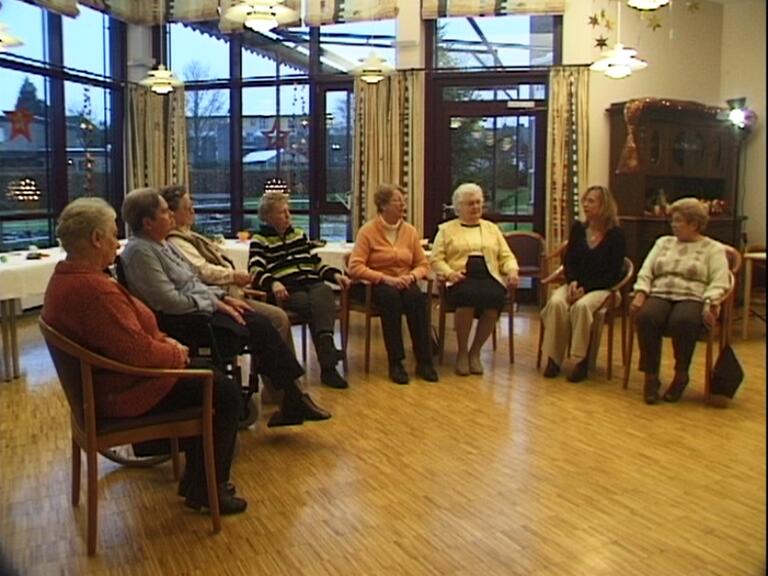Gerontotherapie - Fortbildungsordnung

Die Gerontotherapie ist sehr wesentlich in den 80er Jahren vom Psychotherapeutischen Institut Bergerhausen Duisburg – Deutschland als Weiterqualifikation psychosozialer Berufe entwickelt worden. Es war eine Reaktion auf die immer häufiger notwendige therapeutische Versorgung älterer und alter Menschen.
Zielsetzung
Die Fortbildung qualifiziert die Teilnehmer, in ambulanten und stationären Einrichtungen für ältere und alte Menschen therapeutisch zu arbeiten. Im Hinblick auf die wachsende Zahl älterer und alter Menschen in unserer Gesellschaft bietet gerade die Spezialisierung in der Beratung und Therapie auf dieses Klientel neue Perspektiven. Für die kommenden Aufgaben und neu zu entwickelnden Formen der Betreuung älterer und alter Menschen ist eine Ausbildung mit einer gerontotherapeutischen Ausrichtung besonders notwendig.

Dabei steht die persönliche therapeutische Qualifikation der Fort-bildungsteilnehmer/innen im Vordergrund. Sie baut sich auf einer breiten Basis von fachlichem gerontologischen, geriatrischen und gerontopsychiatrischen Wissen auf und führt in praxisorientierten Lern- und Übungseinheiten schrittweise an die spätere therapeutische Arbeit heran.
Interessierten, die schon professionell oder ehrenamtlich mit älteren und alten Menschen arbeiten, bieten wir die Möglichkeit, Fragestel- lungen aus ihrem Arbeitsprozess mit einem theoretischen Konzept zu begegnen und neue Handlungsmöglichkeiten zu entwickeln. Die eigene Erlebnis- und Handlungsfähigkeit in der Begegnung mit älteren und alten Menschen wird erweitert, so dass die personale und berufliche Qualifikation vergrößert wird, sich neue Arbeitsbereiche erschließen.
Die Fortbildung befähigt die Teilnehmer dazu:
- Autonomie und Selbständigkeit von älteren und alten Menschen zu fördern,
- ältere und alte Menschen bei der Überwindung emotionaler und mentaler Barrieren zu unterstützen, die sie daran hindern, ihr Leben selbst zu bestimmen,
- ältere und alte Menschen in belastenden Situationen zu begleiten und ihnen in Krisen wirkungsvoll zu helfen,
- bei situationsgebundenen Problemen für den älteren und alten Menschen wie für sein soziales Umfeld Unterstützung und Klärungshilfe zu sein,
- die Familien und das soziale Umfeld eines älteren pflegebedürftigen Menschen bei der Bewältigung dieser neuen Situation helfend zu beraten und bei emotionalen Krisen intervenieren zu können,
- in der Situation der terminalen Pflege des Sterbenden sowie in das soziale Umfeld und die Pflegekräfte stützend zu begleiten.
Grundlagen
Der grundlegende Ansatz basiert auf einer ressourcen-orientierten Sichtweise des Menschen und der Korrektur des defizitären Altersbildes. Die Wahrnehmung individueller Ressourcen ermöglicht die Förderung von Kompetenz und Selbständigkeit im Alter. Neue Handlungsmöglichkeiten werden erprobt und können dann im Alltag umgesetzt werden. Die therapeutische Arbeit beinhaltet die Einladung zu einem Gespräch , in dem hinderliche Überzeugungen und Erlebnisfixierungen überdacht und umgestaltet werden. Insofern ist unsere Arbeit lösungsorientiert, ohne den Raum für das Erleben gegenwärtiger, bedeutsamer Emotionen einzuengen. Die therapeutische Arbeit mit älteren und alten Menschen versteht sich auch als Möglichkeit zur Aufarbeitung „unerledigter Geschäfte“ und der Verarbeitung der vielfältigen körperlichen und sozialen Verluste in dieser Lebenszeit.
Unser integrativer Ansatz ist mit seinen Zielen und Interventionen den Fähigkeiten und Bedürfnissen älterer und alter Menschen angepasst.
Die therapeutische Basis bildet das Humanistische Psychodrama, das mit gesprächstherapeutischen, verhaltenstherapeutischen und gestalttherapeutischen Methoden erweitert und ergänzt wird.
Diese Verbindung verschiedener Methoden führt zu einem ganzheitlichen Konzept, das Flexibilität und Individualität einschließt. So erwerben die Fortbildungsteilnehmer/innen die Fähigkeit, aus unterschiedlichen therapeutischen Ansätzen individuelle Vorgehensweisen auszuwählen und für spezifische Arbeitsfelder zu nutzen.
Als Therapeuten sind wir stets teilnehmende Beobachter. Unsere Methoden basieren auf unserem Beteiligtsein, unserer Art der Wahrnehmung und emotionaler Präsenz. Daher ist eine Selbsterfahrung, in der ich erfahre, wer ich bin und wie andere mich wahrnehmen, ein wichtiger Faktor der Fortbildung. Dissonanzen zwischen Selbst- und Fremdbild können erkannt und reflektiert, Veränderungen der eigenen Persönlichkeit in Gang gesetzt werden.

Gerontotherapeutische Gruppe

Des weiteren werden verschiedene therapeutische Methoden vermittelt und eingeübt, die an die Belange des älteren und alten Menschen angepasst sind. Auch hier soll neben der spezifischen Qualifikation für die therapeutische Arbeit mit einem älteren Klientel die eigene persönliche Kompetenz gefördert werden. Eine weitere fachliche Ergänzung steht die Einbeziehung des familiären Kontextes, Kenntnisse zu familiären Systemen, der Generationenfolge und mehrgenerationalen Perspektive dar.
Durch kontinuierliche Reflexion von Theorie und Praxis in der Peer-Gruppenarbeit wird der Gesamtprozess des Fortbildungsganges in Einzelaspekten ergänzt.
Die Fortbildung dauert gesamt 2 1/4 Jahre und schließt mit der Prüfung zum/zur Gerontologischen Therapeuten/in ab.
Zugangsvoraussetzungen
- Mindestalter 25 Jahre
- Abgeschlossenes Studium im Bereich Psychologie, Pädagogik, Sozialarbeit, Sozialpädagogik, Medizin
oder eine abgeschlossene Ausbildung in einem psychosozialen, pädagogischen oder pflegerischen Beruf - Persönliches Aufnahmegespräch beim Fortbildungsträger
Struktur der Fortbildung
Die Fortbildung entspricht 208 Unterrichtsstunden organisierten Lernens 40 Unterrichtsstunden Supervision, 80 Unterrichtsstunden zur Bearbeitung der Theorie, Bearbeitung von Referatsthemen, Übungen)
Fortbildungsinhalte
Lernbereich I: Gerontologisches Basiswissen
- Psychologische Gerontologie
- Soziale Gerontologie
- Gerontopsychiatrie
- Geriatrie
- Lebenszyklen, Abschied, Sterben
- Altenarbeit und Alteneinrichtungen
Lernbereich II: Beraterische Qualifikation
- Schulung der Selbst- und Fremdwahrnehmung
- Beratungstheorien und Beratungskonzepte
- Klientenzentrierte Gesprächsführung
- Gestalttherapeutische Interventionen in der Altenberatung
- Einsatz von Entspannungsverfahren
- Der integrative Beratungsansatz
Lernbereich III: Gerontologisches Fachwissen
- Psychologie des Alterns
- Alternstheorien
- Geistige Leistungsfähigkeit im Alter
- Lernfähigkeit im Alter
- Entwicklung im Lebenslauf
- Altern als Entwicklungsprozess und Entwicklungsaufgabe
- Probleme des Menschen im höheren Erwachsenenalter
- Biographiearbeit
- Sterben und Tod
- Soziologie des Alters
- Soziale Bedingungen und Dimensionen des Phänomens „Alter“
- Der ältere Mensch in der Gesellschaft
- Alter und Armut
- Alter in verschiedenen Kulturen
- Frauen im Alter
- Der ältere Mensch und seine soziale Umgebung
- Der alte Mensch in der Familie
- Alter und Partnerschaft
- Das soziale Netzwerk
- Die Auseinandersetzung mit der Wohnsituation
- Geriatrie
- normales und krankhaftes Altern
- spezifische Krankheitsbilder
- charakteristische Symptome im Alter
- Pharmakologie
- Prävention und Rehabilitation
- Gerontopsychiatrie
- Einführung in die Psychiatrie
- Klassifikationssysteme
- Psychische Störungen und Erkrankungen
- Psychische Störungen und Erkrankungen im Alter
- Abhängigkeitserkrankungen im Alter
- Organisationswissen
- Aufgaben und Funktionen von Organisationen
- Individuum und Organisation
- Organisationsformen und -strukturen
- rechtliche Aspekte
- Möglichkeiten und Probleme sozialer Organisationen
- Organisationen in der Altenarbeit
Lernbereich IV: Therapeutische Qualifikation
- Therapiekonzepte
- Verhaltenstherapeutische Ansätze
- Psychoanalyse
- Tiefenpsychologische Ansätze
- Humanistisch orientierte Ansätze
- Systemisch orientierte Ansätze
- Transpersonale Ansätze
- Entspannungsverfahren
- Ressourcenorientierte Diagnostik
- Krisenintervention
- Spezifische Interventionen aus der Gesprächstherapie, Verhaltenstherapie und Gestalttherapie, dem Humanistischen Psychodrama
- Familiäre Systeme
- Mehrgenerationenperspektive
- Die Integrierte Gerontotherapie
- Abschluss und Abschied
- Therapeutische Haltung, Ethik
Lernbereich V: Selbsterfahrung
- mit Methoden des Humanistischen Psychodramas
Lernbereich VI: Supervision
- zur Reflexion des eigenen beraterischen und therapeutischen Handelns
Prüfung, Abschluss
- Nachweis der Teilnahme an den Seminaren der Fortbildung
- Nachweis der 80 AE Peer-Gruppe
- schriftliche Abschlussarbeit zu einem gerontotherapeutischen Thema (Umfang mindestens 15 DINA4-Seiten)
- Schriftlicher Bericht über die eigene Entwicklung und Qualifikation
- Schriftlicher Kenntnisnachweis über gerontologisches Fachwissen
